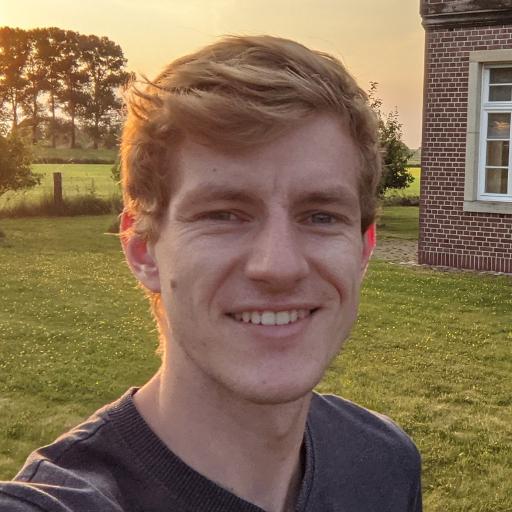
Roland Schmid
I am a last-year PhD student at the Networked Systems Group (NSG) led by Prof. Dr. Laurent Vanbever. My technical background lies in theoretical computer science, algorithms, distributed computing, and system design. My current research interests & projects relate to verification and synthesis of distributed network configurations to improve network reliability.
Professional Vita
I received both my Bachelor’s (2016) and Master’s Degree (2018) in Informatics from the Technical University of Munich, Germany. My career as a researcher started in June 2018 at the Distributed Computing Group under the supervision of Prof. Dr. Roger Wattenhofer. While I was mostly working on developing byzantine fault-tolerant systems, I have also gathered experience in reviewing research papers, supervising student theses, as a teaching assistant, and as a replacement lecturer. From September 2020, my research focus moved towards networking, specifically pursuing projects on trust in programmable networks and transient network verification & synthesis. From June 2018 until August 2021, I served as a member of the teaching commission (UK) of the department D-ITET of ETH.
Research Areas
Teaching
- Advanced Topics in Communication Networks: 2022–2024 (TA / IT Infrastructure)
- Discrete Event Systems: 2020 (TA), 2021–2024 (Head TA)
- Computer and Network Laboratory: 2019–2020 (TA)
- Distributed Systems: 2018 (TA), 2019 (Head TA)
Publications
Supervised Theses
Student: Dominic Bieri
Supervisors: Roland Schmid, Georgia Fragkouli, and Laurent Vanbever
Student: Georg Schwan
Supervisors: Roland Schmid, Tibor Schneider, and Laurent Vanbever
Student: Hande Harputluoglu
Supervisors: Roland Schmid, Tobias Bühler, Georgia Fragkouli, and Laurent Vanbever
Student: Hande Harputluoglu
Supervisors: Tobias Bühler, Roland Schmid, and Laurent Vanbever
Student: Maximilian Stabel
Supervisors: Roland Schmid, Tibor Schneider, and Laurent Vanbever
Student: Kaishuo Zhang
Supervisors: Roland Schmid and Laurent Vanbever
Student: Sandro Lutz
Supervisors: Tobias Bühler, Roland Schmid, and Laurent Vanbever
Student: Yu Chen
Supervisors: Tibor Schneider, Roland Schmid, and Laurent Vanbever
Student: Dominic Bieri
Supervisors: Roland Schmid and Laurent Vanbever
Student: Zhengqing Liu
Supervisors: Romain Jacob, Roland Schmid, and Laurent Vanbever
Student: Patrick Wintermeyer
Supervisors: Zeta Avarikioti, Roland Schmid, and Roger Wattenhofer
Student: Max Mathys
Supervisors: Roland Schmid, Jakub Sliwinski, and Roger Wattenhofer
Student: Tobias Margiani
Supervisors: Roland Schmid and Roger Wattenhofer
Student: Lioba Heimbach
Supervisors: Roland Schmid, Zeta Avarikioti, and Roger Wattenhofer
Student: Shoma Mori
Supervisors: Roland Schmid, Jakub Sliwinski, and Roger Wattenhofer
Student: Lukas Schmid
Supervisors: Roland Schmid, Pankaj Khanchandani, and Roger Wattenhofer
Student: Noe Heim
Supervisors: Simon Tanner, Roland Schmid, and Roger Wattenhofer
Student: Thomas Filippo Tavares Marinho, Mark Vero
Supervisors: Roland Schmid and Roger Wattenhofer
Student: Lucas Bettua
Supervisors: Zeta Avarikioti, Roland Schmid, and Roger Wattenhofer
Student: Noah Studach
Supervisors: Simon Tanner, Roland Schmid, and Roger Wattenhofer
Student: David Geiter
Supervisors: Manuel Eichelberger, Roland Schmid, and Roger Wattenhofer
Student: Starkadur Hrobjartsson
Supervisors: Manuel Eichelberger, Roland Schmid, and Roger Wattenhofer
Student: Valentin Stoppiello
Supervisors: Pál András Papp, Roland Schmid, and Roger Wattenhofer
Student: Sibylle Jeker
Supervisors: Manuel Eichelberger, Roland Schmid, and Roger Wattenhofer
Student: Anton Brucherseifer
Supervisors: Roland Schmid, Simon Tanner, and Roger Wattenhofer
Student: Lukas Bieri
Supervisors: Zeta Avarikioti, Roland Schmid, and Roger Wattenhofer
Student: Peter Müller
Supervisors: Roland Schmid, Gino Brunner, and Roger Wattenhofer